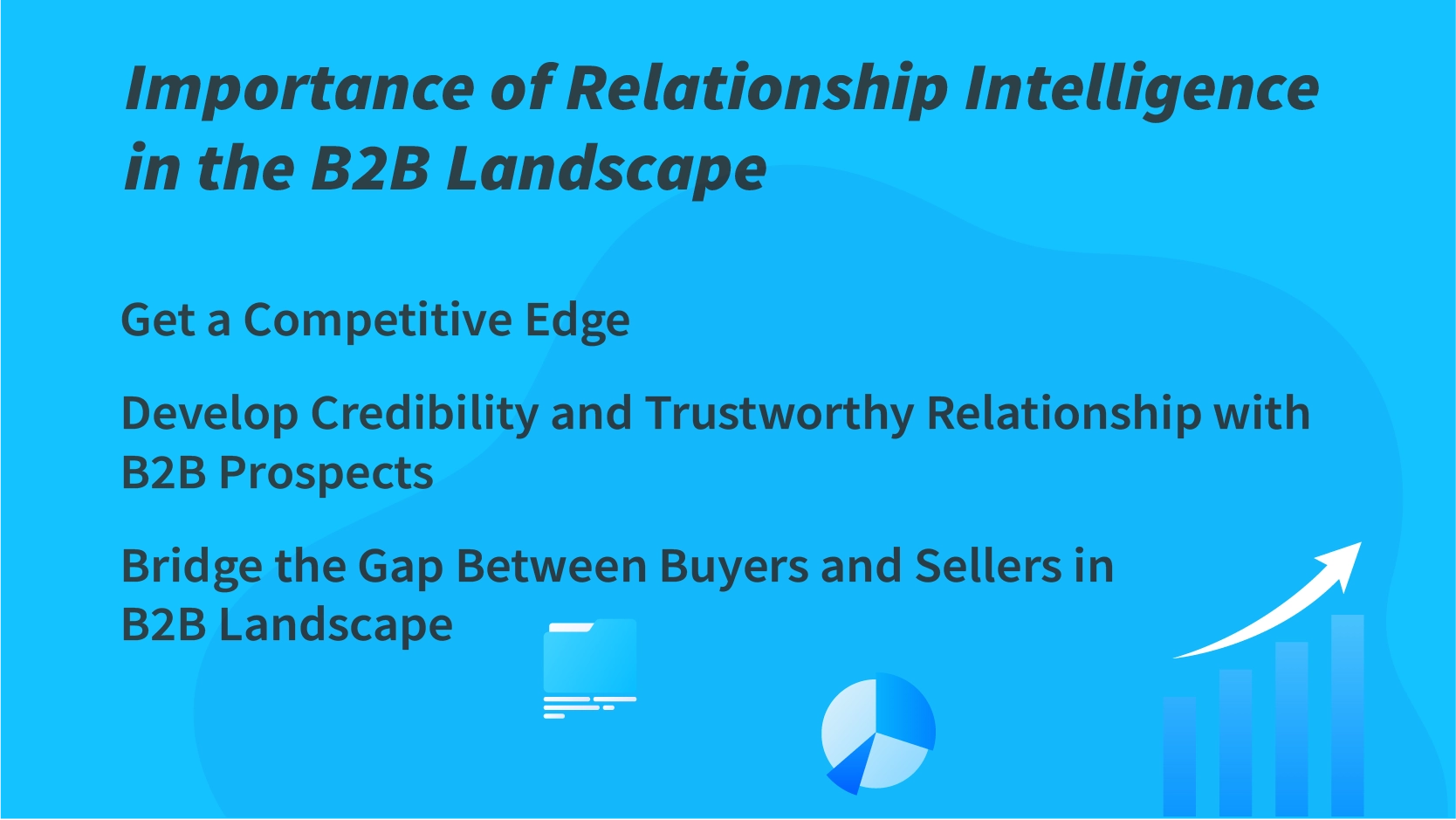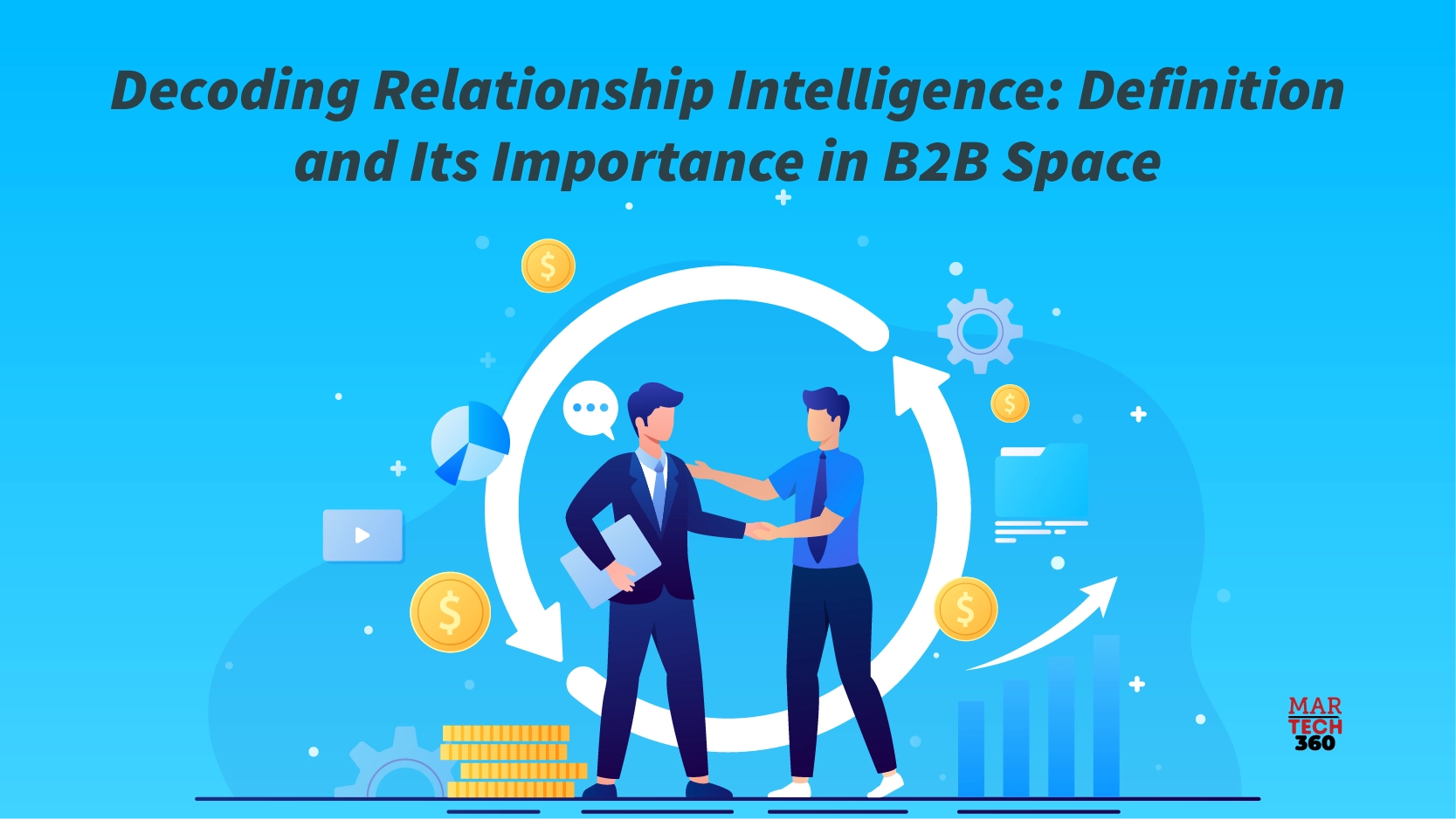If you talk to any experienced business leader, they’ll tell you the heart of a successful business lies in the relationships you build—with both potential and loyal customers. These connections are what keep a business thriving. That’s why it’s no surprise that so many companies rely on Customer Relationship Management (CRM) software to help manage and nurture these relationships.
But here’s the thing: a CRM alone isn’t what creates those deeper, more meaningful interactions that turn connections into long-term partnerships. It’s the human touch and relationship intelligence that truly makes those relationships flourish and pay off. If you are wondering what relationship intelligence is and how it can benefit the B2B organizations, this blog will help you clear some air.
What is Relationship Intelligence?

Relationship intelligence is referred to as utilizing cutting-edge technology, such as data analytics, machine learning, and others, to determine and interpret the intricate relationships between entities, groups, or individuals. The objective of relationship intelligence is to offer actionable insights into patterns of relationships and behaviors and potential opportunities. A relationship intelligence platform works slightly differently than legacy (Customer Relationship Management) systems. These tools dig deeper to understand the emotional and behavioral aspects of the customers.
In other words, relationship intelligence is a classification of insights about the shared professional network within an organization. It encompasses of evaluation of massive amounts of data sets to identify missed opportunities and connections throughout the organization’s vast ecosystem. It is an effective approach that assists dealmakers and sales teams in identifying, managing, and closing more deals.
For instance, if your company is looking to set up a meeting with the decision-maker of a potential client. Relationship intelligence will help organizations to identify which of the colleagues knows the c-suite in the prospect company who can facilitate a warm introduction. It is an effective way to leverage relationship strength score to determine if any of your co worker know someone at the firm that can be your potential client.
If this looks very confusing, do not worry, we will have a deeper dive into how relationship intelligence can help B2B organizations.
Also Read: Unveiling The Future of Lead Generation
Importance of Relationship Intelligence in the B2B Landscape

Here are few key factors that highlight the importance of embracing relationship intelligence to ensure success:
● Get a Competitive Edge
The importance of relationship intelligence can be determined in the initial stages of the sales. It enables the sales team to identify the most efficient way to tap the target accounts. The best relationship intelligence tools can assist organizations to seamlessly create a roadmap of the complete networks of relationships that exist in the internal teams and decision makers at the prospect teams.
There are a few platforms that offer access to the network of external members for sales users to expand their network by identifying additional connections paths. A comprehensive view of the relationship maps enables sales teams to highlight where they can mosy efficiently utilize personal introductions to secure an initial appointment. Sales teams that embrace personal introductions and referrals have witnessed a substantial increase in their lead conversion rates.
● Develop Credibility and Trustworthy Relationship with B2B Prospects
Sales representatives in the B2B landscape find it difficult to close deals as the buying processes are more complex and the decision makers are unlikely to interact with the sales reps. As the technology market is witnessing an economic slowdown, resulting in companies slashing down budgets and are less responsive to purchase anything thats not necessary. This has pushed the revenue and sales leaders in a though spot, because revenue operations teams are constantly pressured with numbers. To overcome this sales teams need to establish a trustworthy connection with the prospects by engaging with them proactively. This approach is one of the most effective ways for revenue operations teams to achieve their sales goals.
Sales teams need to execute an indepth research on the prospect and their enterprise. It is crucial for the revenue generating teams to did more deeper into the prospects needs by utilizing relationship intelligence and intent data.
● Bridge the Gap Between Buyers and Sellers in B2B Landscape
With the advent of the digital channels, high-quality information is easily accessible to potential buyers online. As a result, the gap between the sales representatives and their prospects is becoming more wider. Prospects today tend to do their own research before they make any purchase decision. Hence, the sales teams need to modify their strategy to approach their prospects.
According to report by 6sense B2B buyers are almost 70% through their buying process by the time they engage with sellers directly. The B2B market has become very competitive and its is not as easy as it used to be earlier. Bygone are those days when just educating the client about the product was enough to close the deal. Today, the sales teams have to consider if the prospect has awareness of their brand or not.
B2B purchase cycles are intricate because they involve multiple decision makers in the decision making process. Each decision maker would have done some research about your products and services before interacting with your brand. According to report by Gartner, approximately 75% of B2B buyers prefer a rep-free sales experience.
Hence, sales teams these days should not necessarily focus on increasing the volume of outreach or invest in more tool. Rather they should focus on spening less time selling and put more efforts on offering valuable information to the prospect.
Sales representatives should consider offering tailor-made content to assist prospects and decision makers to resonate with the data available online if they want to increase the probability of the conversion.
Relationship intelligence is important in B2B relationship management as it assist in developing content by using data-powered insights to explore the customer behavior patterns. Organizations can get a better understanding of their client’s journey by integrating the best relationship intelligence platforms available.
In Conlusion
Relationship Intelligence gives sales teams a powerful advantage by revealing which colleagues have the strongest connections with prospects or customers. This insight allows sales reps to tap into those relationships, making it easier to find coworkers who can provide warm introductions to potential clients.
These introductions save time and significantly improve the success rate of sales calls compared to the traditional cold-call approach. By leveraging these existing connections, your team can enhance account engagement, foster better collaboration, and ultimately drive stronger results.


Comments are closed.